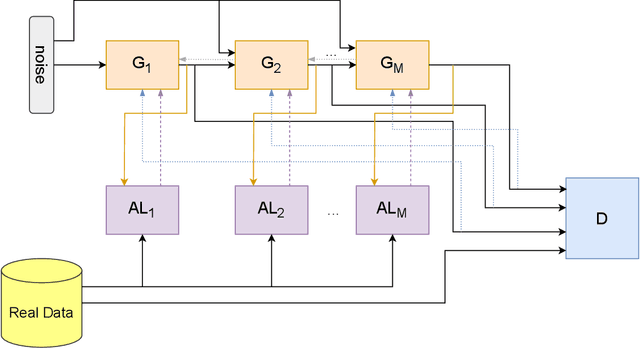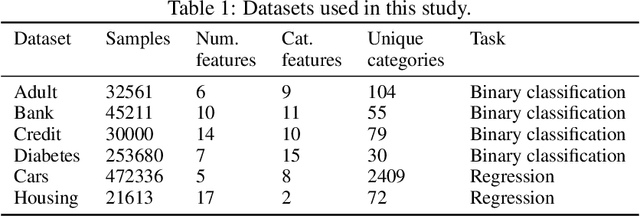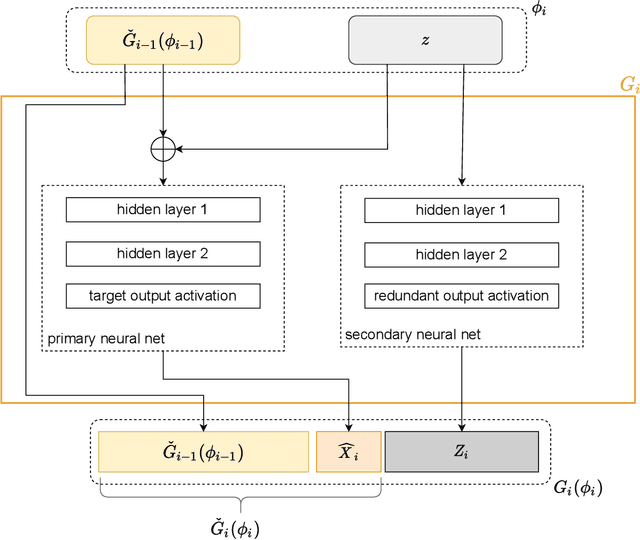CasTGAN: Cascaded Generative Adversarial Network for Realistic Tabular Data Synthesis
Paper and Code
Jul 01, 2023



Generative adversarial networks (GANs) have drawn considerable attention in recent years for their proven capability in generating synthetic data which can be utilized for multiple purposes. While GANs have demonstrated tremendous successes in producing synthetic data samples that replicate the dynamics of the original datasets, the validity of the synthetic data and the underlying privacy concerns represent major challenges which are not sufficiently addressed. In this work, we design a cascaded tabular GAN framework (CasTGAN) for generating realistic tabular data with a specific focus on the validity of the output. In this context, validity refers to the the dependency between features that can be found in the real data, but is typically misrepresented by traditional generative models. Our key idea entails that employing a cascaded architecture in which a dedicated generator samples each feature, the synthetic output becomes more representative of the real data. Our experimental results demonstrate that our model well captures the constraints and the correlations between the features of the real data, especially the high dimensional datasets. Furthermore, we evaluate the risk of white-box privacy attacks on our model and subsequently show that applying some perturbations to the auxiliary learners in CasTGAN increases the overall robustness of our model against targeted attacks.
 Add to Chrome
Add to Chrome Add to Firefox
Add to Firefox Add to Edge
Add to Edge